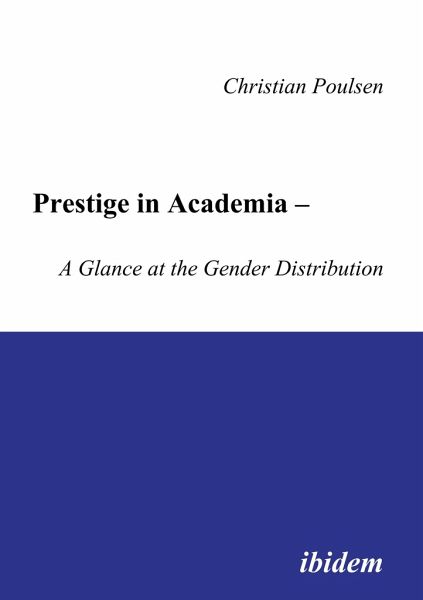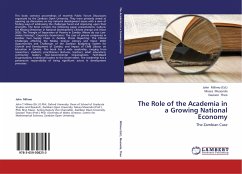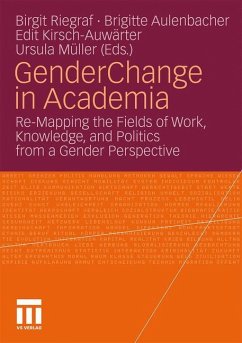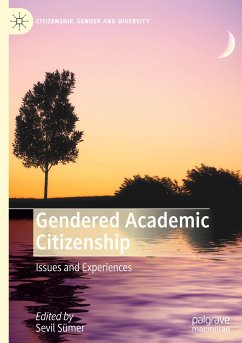
Prestige in Academia - A Glance at the Gender Distribution
Versandkostenfrei!
Versandfertig in 6-10 Tagen
24,90 €
inkl. MwSt.

PAYBACK Punkte
0 °P sammeln!
The acquiring of prestige is essential for succeeding at a career in academia. Further, the distribution of prestige between women and men may help explain the low representation of women in full professor positions. Christian Poulsen sets out to disprove the widely accepted notion that univer-sities are based on a pure meritocratic system. His book compounds extensive survey studies of Swedish professors as well as focus group interviews with male and female professors. Findings were compared with other studies on prestige and status in which Spain served as a reference country.It was found t...
The acquiring of prestige is essential for succeeding at a career in academia. Further, the distribution of prestige between women and men may help explain the low representation of women in full professor positions. Christian Poulsen sets out to disprove the widely accepted notion that univer-sities are based on a pure meritocratic system. His book compounds extensive survey studies of Swedish professors as well as focus group interviews with male and female professors. Findings were compared with other studies on prestige and status in which Spain served as a reference country.It was found that women were not discriminated against in the transferring of merit to prestige. Additionally it was revealed that professors feel the status of the profession has decreased, but on the other hand female professors were more satisfied with the current status of professors. Not surprisingly it was also found that the prestige of Swedish professors is not based alone on merit. Instead relational factors play a role in the assignment of prestige.Christian Poulsen introduces the term'consecrating moments'to explain the relational nature of assigning prestige. The concept refutes the widely accepted idea that a career in academia is made up of a long and continual flow of good performance. In doing so, it discusses sociology of education, feminist theory of women in academia and the theory developed by Robert K. Merton and his followers.The book is the PhD dissertation of Christian Poulsen, adhered to the Sociology department at Lund University, Sweden.













